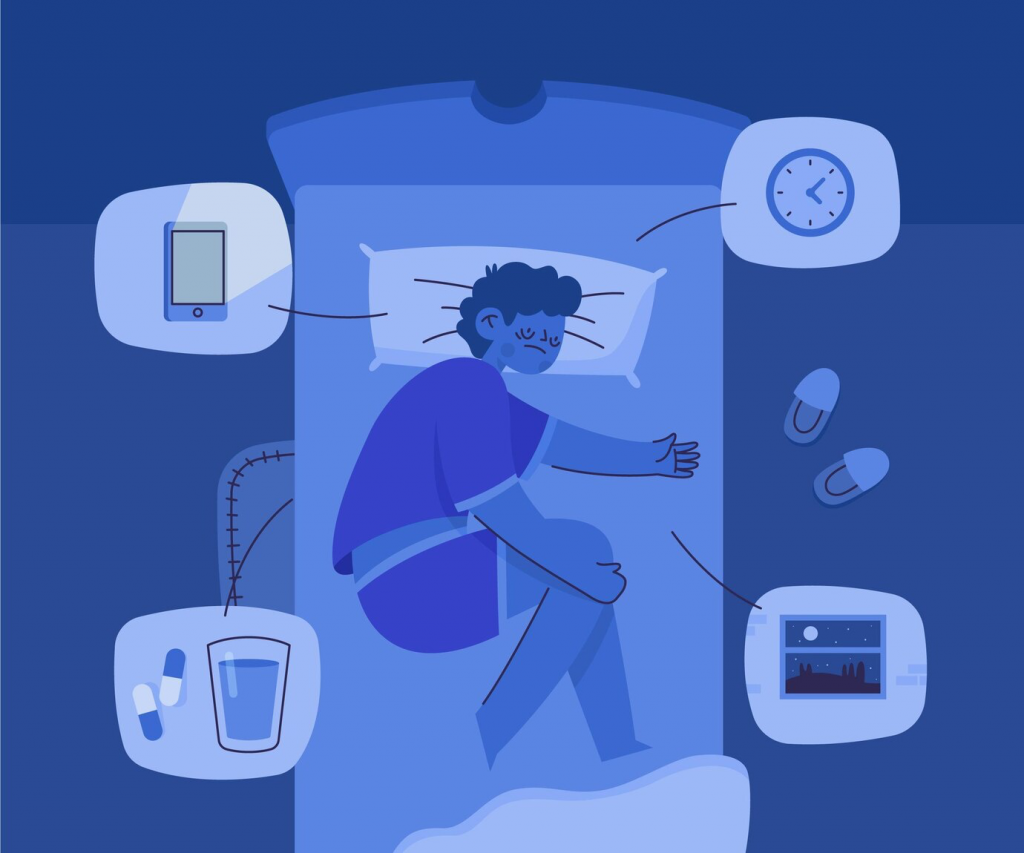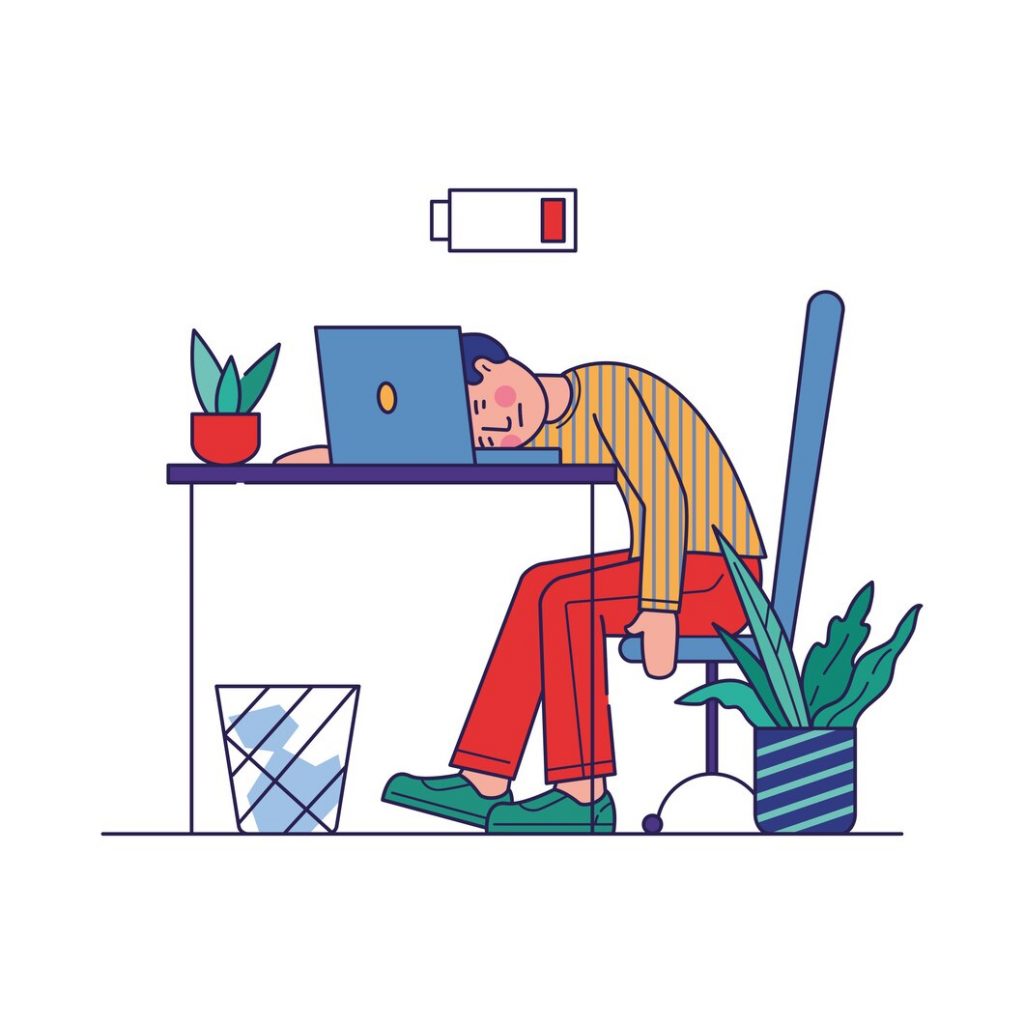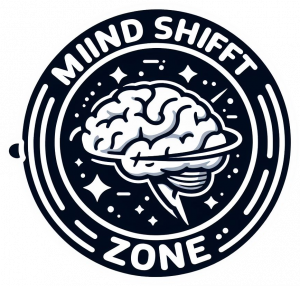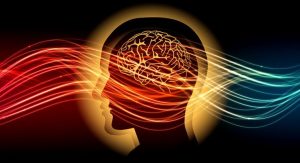Fatigue goes beyond being tired. It can affect all aspects of our lives and cause daily activities to seem overwhelming and reduce the enjoyment of things that we used to enjoy. If you’re exhausted all the time it is essential to look more deeply into the reasons that cause this constant feeling. The cause of fatigue can be various factors, such as the physical condition as well as lifestyle choices as well as emotional health. In this article, we will look at the most prevalent reasons for fatigue and suggest practical steps to help restore health and energy.
Understanding the Causes of Fatigue
Сonstant fatigue affects our ability to concentrate on work and have fun with our friends and family. Many ask, “What are the main causes of fatigue?” or “Why am I always tired?” When we look into these questions, we find the root causes of fatigue that are often without being noticed. In this article, we’ll explore the most frequent causes for fatigue and ways to combat the causes.
1. Poor Sleep Quality

In the majority of cases, sleep is the time when the mind and body reset, repair, and prepare for the next day. But sleep disorders such as insomnia, sleep apnea or restless legs syndrome interfere with this vital process, leading to fatigue and chronic fatigue. As per the National Sleep Foundation, adults require 7 to 9 hours of rest each night. However, equally important to the amount will be the quality sleep.
The Role of Sleep Disorders:
Insomnia can hinder the body from entering deep sleep when conditions such as sleep apnea can disrupt breathing while asleep which can trigger frequent awakenings people may not remember. Sleep disruptions can hinder the body from getting complete sleep, leading to fatigue during the entire day. Research suggests that if sleep apnea is not treated, apnea may double the risk of fatigue that persists, placing stress on the lungs and heart.
How to Improve Sleep Hygiene:
Improving your sleep and routines, also known in the field of sleep hygiene, is essential to combating fatigue related to sleep. Begin by ensuring a regular time for bed and waking up, especially on the weekends. Reduce the amount of time you spend on screens one hour prior to bedtime as well as making sure that the room is kept cool. Focusing on ways to relax such as reading or meditation can help you achieve an easier sleep. If you are experiencing chronic health issues, speak to an expert in sleep who will aid in the identification of specific disorders and suggest treatments.
2. Sedentary Lifestyle
If our lives are filled with sitting for long periods of time, be it at work or sitting on a couch or even in transit, it’s normal to feel exhausted. Research conducted by Harvard Health reveals that a sedentary lifestyle can have a negative impact on the way you feel, your mood and even your slееp quаlity. All of which are important in keeping your energy levels up.
Lack of Physical Activity:
Physical inactivity is among the main reasons why you’re constantly exhausted. If your body isn’t getting regular movements, it begins to slow down. The muscles can become weaker and circulation slows down, and mental fatigue may develop, even though you’ve not been physically active for a while. Inactivity can make everyday tasks seem more demanding and even the simplest tasks can cause you to lose energy more quickly.
Simple Ways to Increase Activity:
Including some light exercise in your daily routine will boost your mood and energy. Consider taking a 10 minute walk in between lunch breaks or moving up and stretching each hour, or perhaps engaging in a short fitness routine to get you started on your day. Exercise regularly has been proven to increase sleep quality, boost circulation, and boost mood through endorphins being released decreasing the causes of fatigue and tiredness.
3. Unbalanced Diet

Food is what allows our bodies to run smoothly. A poor diet can rapidly drain the energy reserve. Although snacking on quick meals and processed foods might provide instant energy, they frequently lead to crashes that can increase fatigue.
Nutrient Deficiencies:
Mineral deficiencies and vitamin deficiencies are the most common cause of fatigue. Iron, for instance, is a key component in the transport of oxygen, and the absence of iron can result in anemia, which is characterized by constant fatigue and low energy. Vitamin D deficiency is a factor that affects the health of bones and immune system and can also be linked to lower performance. Johns Hopkins Medicine states that even minor deficiency can have a profound effect on the energy level, which makes it crucial to obtain these nutrients via diet or supplements when required.
Hydration and Energy Levels:
A lack of water is another reason that could make you feel unmotivated. Water is essential to almost every bodily function, and even mild dehydration may affect physical and mental performance. Consider keeping a reusable drinking water bottle in your bag all day long to ensure regular water intake. A slice of cucumber or lemon makes it more enjoyable and aid digestion, and can also aid in boosting your energy levels.
4. Stress and Anxiety
In our fast-paced society stress and anxiety are inevitable companions for a lot of people. Although short bouts of stress may help concentration and energy levels, long-term stress can cause a negative result, causing physical and mental exhaustion. Stress and anxiety that persist for a long time trigger the system’s “fight-or-flight” response activated, overflowing our bodies with stress-related hormones, such as cortisol that may leave you feeling exhausted.
Mental Health’s Impact on Fatigue:
If stress hormones are elevated and disrupt sleep patterns, cause increased tension in muscles, and decrease the immunity system which can cause the feeling of being exhausted. Stress can cause this by making your mind hyper-vigilant and your body tight, resulting in feeling like you’re carrying a heavy burden throughout the day long. Understanding that stress is a major factor in fatigue can assist individuals in addressing the issue directly, thereby improving overall health and energy levels.
Effective Stress Management Techniques:
Controlling stress is essential in reducing fatigue and there are many efficient methods to think about. Meditation has been proven to reduce stress levels by calming the mind and redirecting on the present, and deep breathing exercises can lessen the physical manifestations of anxiety. Relaxation techniques that you practice prior to bed, or including meditation exercises in breaks can dramatically reduce the effects of stress on the body and the mind. Also, devoting some time each day to journaling gratitude or interacting to loved ones could bring emotional relief and help maintain energy levels.
5. Hormonal Imbalances
Hormones play a crucial part in controlling the level of energy, and even small imbalances can result in constant fatigue. The phases of life like menopausal as well as puberty, pregnancy and menopausal are characterized by natural changes in hormone levels that affect the mood and energy levels. Thyroid disorders like hypothyroidism can make people feel exhausted due to slowing metabolism.
The Role of Hormones in Fatigue:
The hormonal fluctuations affect how our bodies process energy. In menopausal times, for example the lower levels of estrogen can cause sleep issues and stress levels as well as contributing to fatigue. Hypothyroidism is a condition that occurs when thyroid glands produce insufficient thyroid hormone which can result in extreme fatigue as well as weight gain and the feeling of being sluggish when mеtabolism decreases. Understanding the hormonal effects can help people realize that fatigue might not be caused by the way of life, but rather by biological causes.
Managing Hormonal Fatigue:
The natural way to balance hormones can ease the symptoms of fatigue due to hormones. A diet rich in nutrients, as well as regular physical activity and getting enough rest, are the most important steps towards the health of your hormones. Certain supplements, such as magnesium have also been found to improve hormonal balance and improve the quality of sleep. If you have more severe imbalances, consulting an expert in healthcare is recommended because they may offer solutions or medications to control hormone levels.
6. Medical Conditions

Fatigue can be a symptom of medical conditions that affect the body’s capacity to produce and maintain energy. Anemia, a chronic illness or diabetes, as well as heart disease, can trigger severe fatigue and often require medical intervention to relieve symptoms. Knowing when fatigue may indicate an issue with your health is essential in obtaining the appropriate treatment.
Common Health Problems Linked to Fatigue:
Conditions like anemia decrease levels of oxygen in blood, directly impacting the level of energy. The effects of diabetes can cause fluctuation in blood sugar and cause fatigue when levels are excessively high or low. The heart disease that can affect the flow of blood and oxygen supply can also cause an inability to function. Chronic fatigue syndrome (CFS), although not completely understood, is a different disorder that can cause chronic and severe fatigue. Being aware of these conditions early may assist patients to manage their symptoms efficiently.
When to Consult a Doctor:
If the fatigue continues and is associated with symptoms such as unproven loss of weight, persistent pain or breathing problems, then it’s vital to seek medical assistance. Healthcare professionals can conduct tests for blood or other substances to determine if there are any medical issues that cause fatigue. The treatment of these issues will help to reduce the reason for fatigue constantly and help bring back normal levels of energy.
7. Mental Health Conditions
Mental health plays a significant influence on levels of energy. Depression or anxiety, as well as burnout can trigger an intense feeling of fatigue which is usually referred to as mental or emotional exhaustion. As opposed to physical fatigue, exhaustion can last even after a break, which makes it difficult for people to get relief from the issue without understanding the root of the issue.
Depression and Emotional Exhaustion:
Depression can lead to physical and mental fatigue because it can disrupt sleep patterns, reduces motivation аnd decreases the motivation to engage in everyday activities. A sense of emotional exhaustion, usually resulting from burnout or chronic stress can drain mental energy and can affect cognitive functioning which makes simple tasks seem overwhelming. The emotional burden of these issues contributes greatly to fatigue as the mental capacity is constantly diminished.
Seeking Professional Help:
If you’re experiencing constant emotional fatigue, seeking out an expert in mental health can be transformational. Counseling, therapy or support groups can provide the opportunity to talk about feelings, come up with strategies to cope and strengthen emotional resilience. In certain instances, medication could be prescribed as a component of the treatment. If they are treated properly, people who suffer from fatigue related to mental health will be able to find ways to improve both their moods and energy levels.
8. Caffeine and Alcohol
Many people depend on caffeine to power through their day. Вut excessive use can become an unwieldy weapon. Although caffeine can temporarily increase alertness, excessive amounts of it could lead to dependence and energy loss after it has left the body. As time passes, this cycle could make you feel exhausted, even though you consume more caffeine, resulting in an unsustainable energy rollercoaster.
The Double-Edged Sword of Caffeine:
Caffeine is a stimulant that blocks the chemical adenosine that helps sleep, however with time, the body adapts and the effects decrease. Consuming a lot of caffeine, particularly late in the day can interfere with your sleep cycle and cause sleep that is not as good and fatigue. Reduced consumption of caffeine gradually will help you break the dependence and help restore your natural energy patterns.
The Role of Alcohol in Fatigue:
Although alcohol can aid in relaxation it disrupts the deep sleep phases, which are crucial for feeling refreshed. Sleep Foundation claims that even one drink prior to bedtime could disrupt the sleep cycle and result in a tired, groggy feeling when you wake up. Restricting your alcohol consumption and avoiding drinking in the days before bed will reduce fatigue.
9. Overexertion and Lack of Rest

The pressure of continuous productivity will push individuals to the limits, which results in psychological and physical exhaustion. Excessive stress, whether due to demanding work, intense exercise and emotional strain, could cause burnout, an experience where you feel exhausted to the core. Overexertion-related fatigue can affect both mental and physical health, resulting in problems that last for a long time if not dealt with.
Physical and Mental Overexertion:
Intense exercise could result in your body and mind to hit an end point, at which point even a resting period doesn’t seem to aid. Overexertion that is constant causes an increase in cortisol levels. This is a stress hormone that can further drain energy. Identifying the symptoms of overexertion in the early stages can help avoid more serious issues such as burning out and fatigue.
The Importance of Rest:
A regular schedule of rest and relaxation is vital to replenish your reserves of energy. Incorporating breaks into your schedule and establishing limits for working hours, and making time for leisure activities can rejuvenate your batteries and help reduce stress. Making time for regular breaks will help you combat fatigue and help maintain energy levels over the long haul.
10. Environmental Factors
Your environment plays a major influence on how energetic or exhausted you feel. Things like temperature, light and sound can all affect your energy levels without realizing. Making sure your environment is conducive to productivity and rest can make you feel more productive and less tired.
How Your Surroundings Affect Energy:
Lack of lighting can cause headaches and eye strain as high temperatures make it more difficult to focus. Continuous noise can disrupt concentration and can raise the stress level, leading to fatigue and mental exhaustion. Environmental influences are frequently ignored, but they can have a significant impact on your energy levels throughout the day and affect your general mood.
Tips to Improve Your Environment:
Making small changes to your environment will help you feel more alert and focused. The natural light in your environment can boost the alertness of your brain, so make sure to set your work area close to windows. The ability to adjust your temperature until it is at a suitable level, by using headphones with noise cancellation or putting in plants to create a tranquil environment can boost energy levels. An environment that is well-designed can provide an effective, subtle support system to maintain energy levels.
How to Regain Your Energy

Understanding the root of fatigue is just one part of the solution. The next step is to implement practical strategies to fight fatigue and regain energy. We’ve outlined practical steps that will help you feel more energetic and prepared for the next day.
Prioritize Quality Sleep
A good night’s sleep is vital for energy levels and well-being. Make sure you have a consistent sleeping schedule, sleeping and rising in the exact same order each day regardless of the weekend. Make a bedtime routine that is relaxing, such as reducing the lighting or avoiding screens and engaging in activities that promote relaxation that your body is ready for you to wind down and enhance sleep quality.
Adjust Your Diet
Eаting a balanced diet with a high proportion of whole foods will provide an energy level that is constant throughout the entire day. Make sure to eat more fruits, vegetables, whole grains and lean proteins that help to maintain steady blood sugar levels as well as reduce energy-related crashes. It is also important to stay hydrated since dehydration can lead to fatigue. Make sure you drink plenty of water throughout the day. Also, consider cutting down on sugary snacks that can cause energy surges and crashes.
Incorporate Regular Physical Activity
Regular exercising is among the most effective methods to fight fatigue. Even activities that are light to moderate such as stretching, walking or yoga, can increase circulation, improve oxygen flow and improve mood. Exercise produces endorphins that boost energy levels and enhance the quality of sleep, making it a great tool for people experiencing constant fatigue.
Manage Stress and Mental Health
Mental health has a major influence on energy levels, and managing stress is essential in avoiding fatigue. Practicing mindfulness, breathing exercises that are deep or journaling can assist in easing tension and lower anxiety. For those who suffer from anxiety or chronic stress, talking to a therapist may provide long-term strategies for managing these emotions as well as decreasing fatigue caused by mental health problems.
When to See a Doctor About Fatigue
If fatigue continues to persist regardless of changes to your lifestyle, it could be a good idea to seek out medical professionals. Persistent tiredness that doesn’t get better through rest or adjustments to diet, exercise or managing stress could indicate an underlying medical issue, like thyroid dysfunction, anemia or sleep issues. A visit to your doctor can provide a diagnosis and treatment, allowing you to restore energy and increase your life quality.











